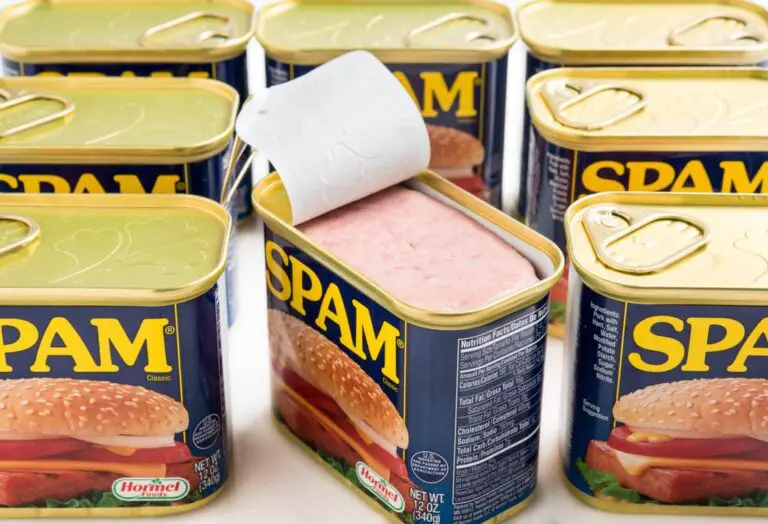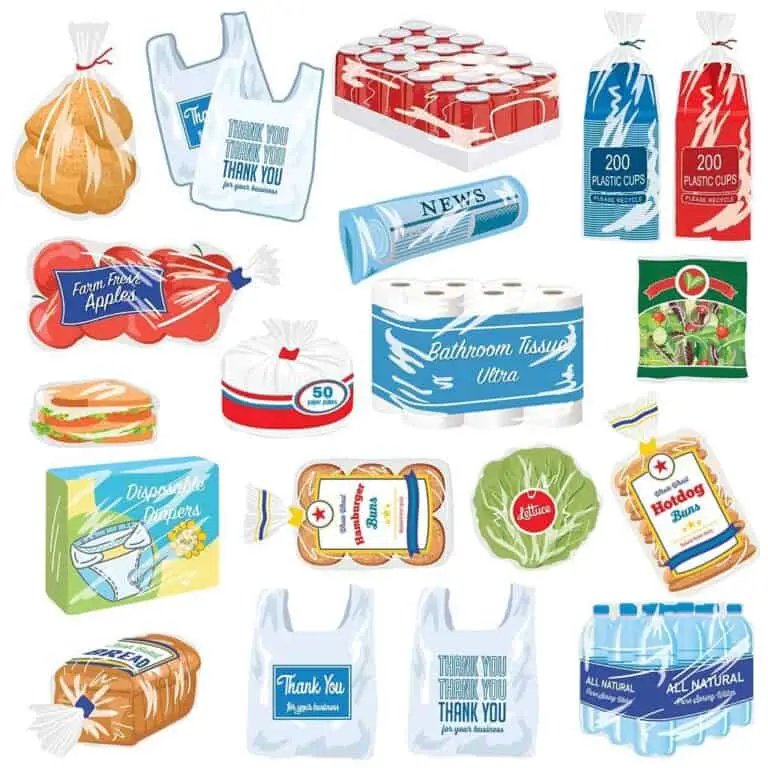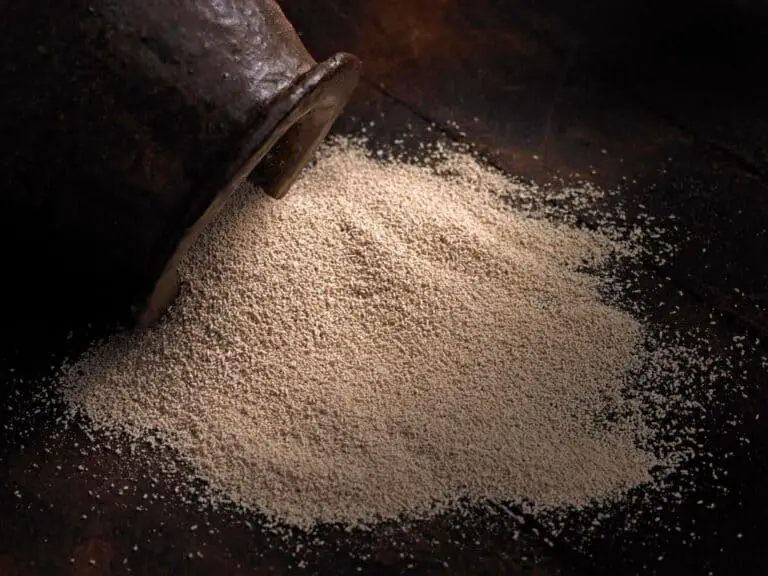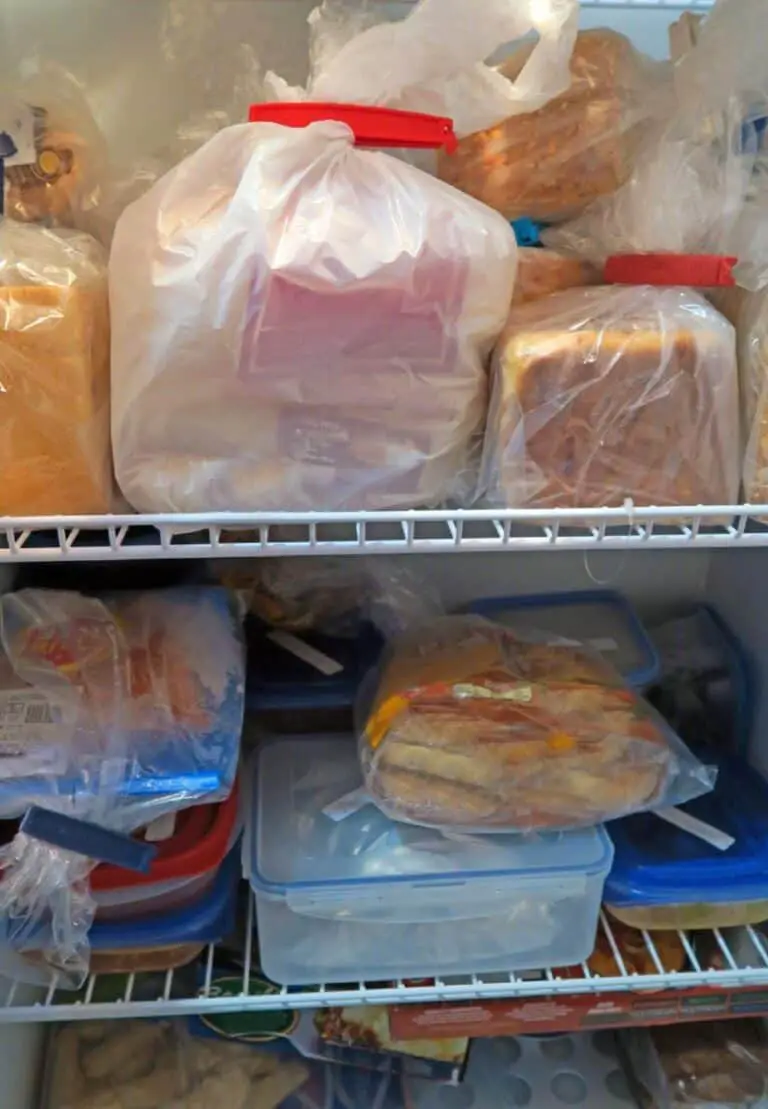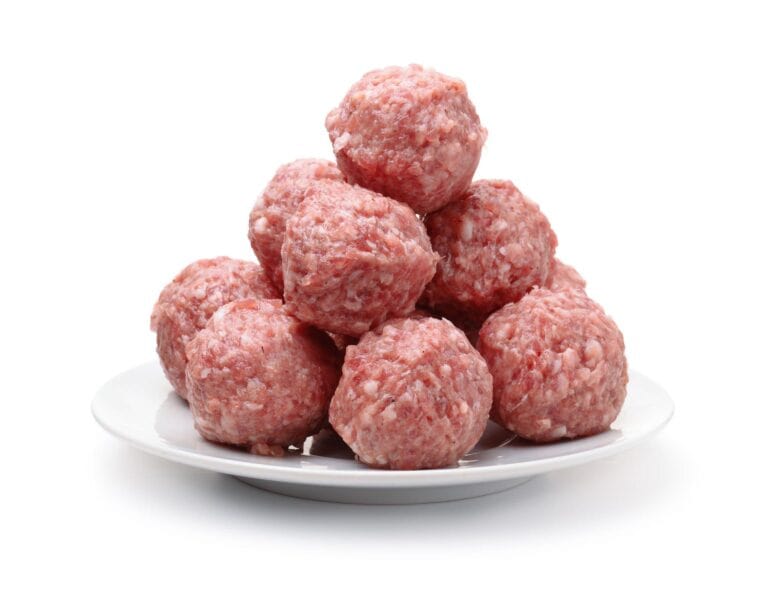How To Freeze Fresh Brussels Sprouts Without Blanching
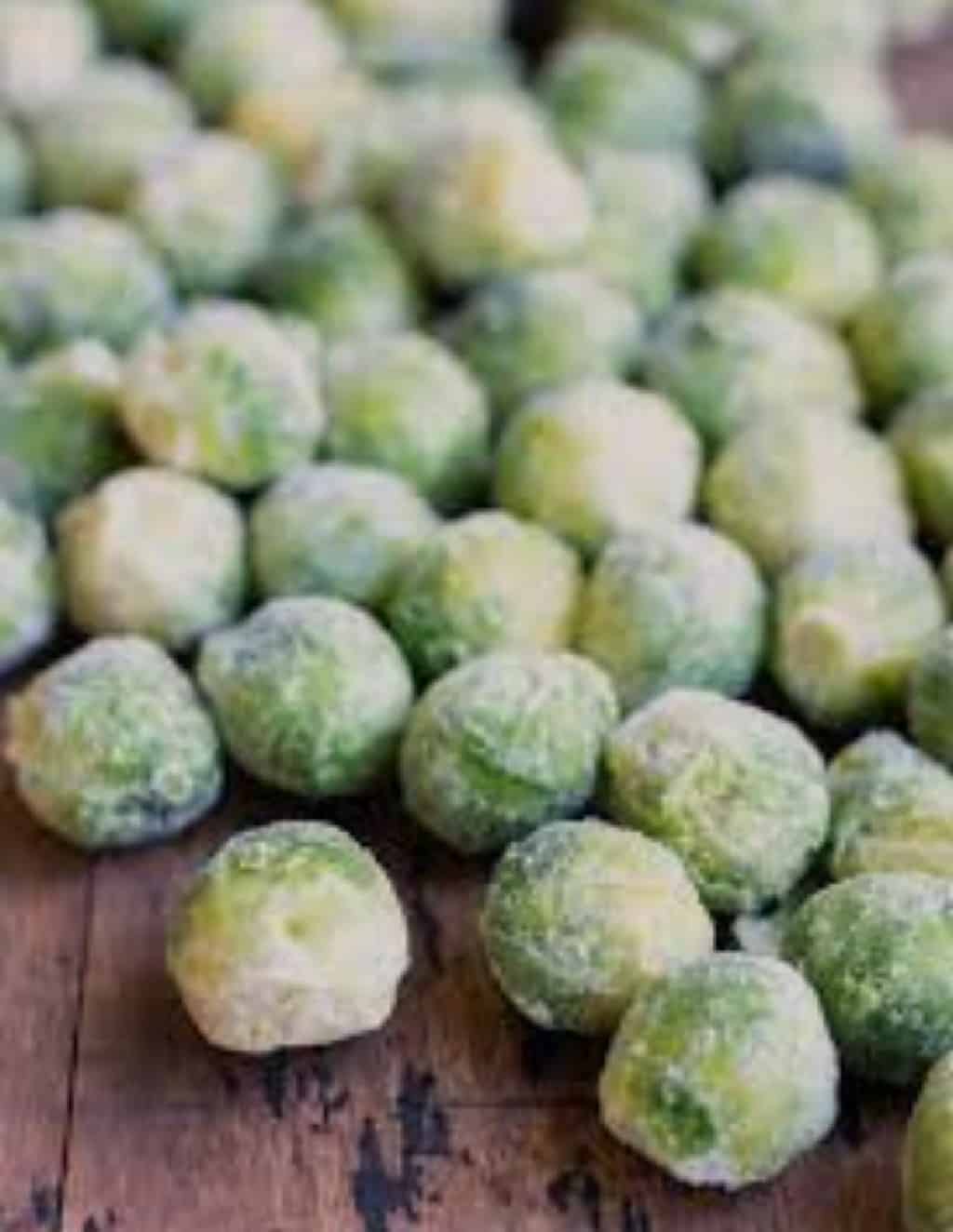
Are you a fan of fresh Brussels sprouts but find yourself with an abundance that you can’t consume in time? Don’t let those delicious and nutritious veggies go to waste!
Freezing is an excellent solution that allows you to preserve the vibrant flavor and tender texture of fresh Brussels sprouts. But here’s the best part: you can freeze them without the hassle of blanching!
Say goodbye to the extra step and hello to a quicker, easier method of freezing. By following a few simple steps, you can enjoy the goodness of Brussels sprouts all year.
In this article, we will guide you through the process of freezing fresh Brussels sprouts without blanching, ensuring that you retain their peak freshness and nutritional value.
Why Freeze Fresh Brussels Sprouts?
Freezing fresh Brussels sprouts offers several advantages that make it a convenient and practical option for preserving these nutritious vegetables. By freezing Brussels sprouts, you can enjoy the following benefits:
- Retaining nutritional value: Freezing is a great way to preserve the nutritional content of fresh Brussels sprouts. The freezing process helps to lock in the vitamins, minerals, and antioxidants present in the sprouts, ensuring that they remain intact until you’re ready to enjoy them.
- Extended shelf life: Freezing fresh Brussels sprouts allows you to store them for an extended period without worrying about spoilage. It helps to maintain their quality, flavor, and texture, ensuring you have a steady supply of Brussels sprouts even when they’re out of season.
- Convenience: Freezing fresh Brussels sprouts gives you the flexibility to use them whenever you need them. Whether you want to incorporate them into recipes, side dishes, or salads, having frozen Brussels sprouts readily available saves you time and effort.
Understanding the Blanching Process
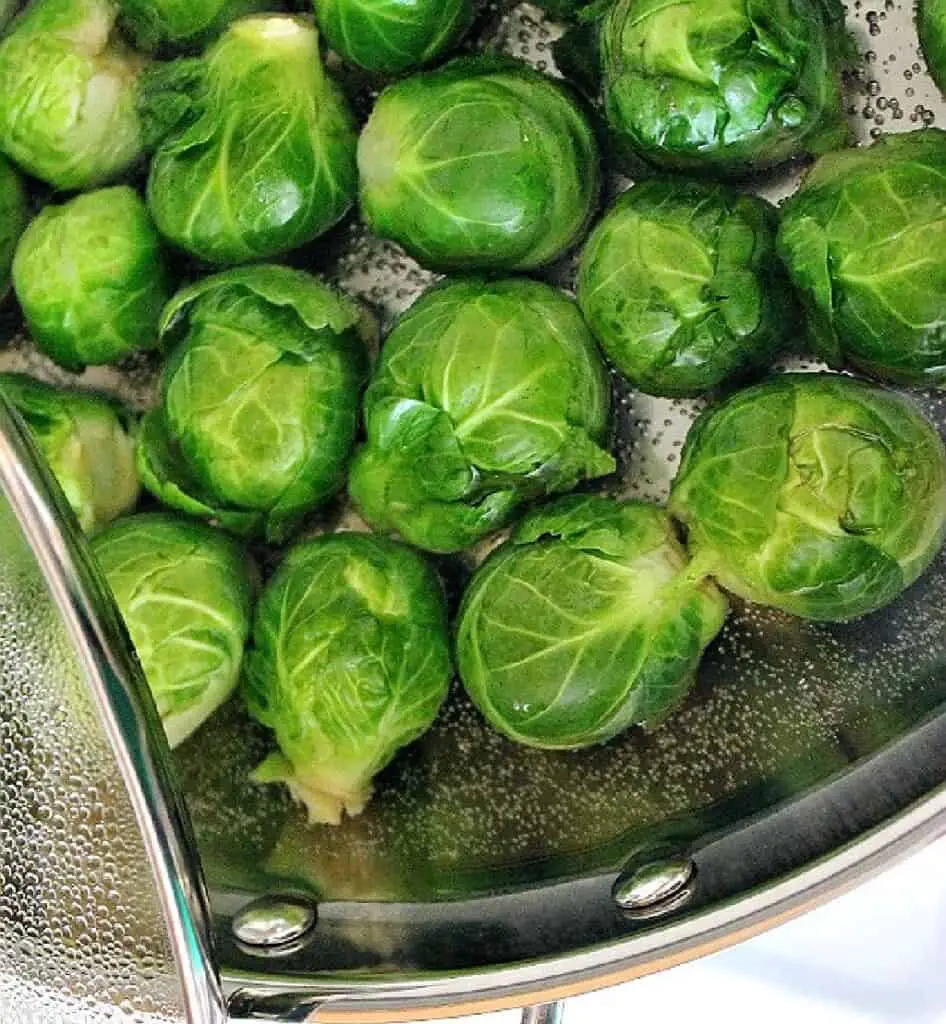
Before exploring alternative methods for freezing Brussels sprouts without blanching, it’s important to understand the blanching process and its role in freezing vegetables.
What is blanching? Blanching is a pre-freezing technique that involves briefly boiling vegetables in water and then rapidly cooling them in ice water. This process helps to deactivate enzymes present in the vegetables that can cause color and flavor changes as well as nutrient loss during freezing.
Purpose of blanching in freezing vegetables: Blanching vegetables, including Brussels sprouts, before freezing helps to maintain their quality during storage. It preserves their color, texture, and nutritional value, and can also help kill bacteria present on the surface of the vegetables.
Potential drawbacks of blanching Brussels sprouts: While blanching is a widely recommended technique, it does have a few drawbacks. Blanching can cause a slight loss of nutrients, particularly water-soluble vitamins like vitamin C and B vitamins. Additionally, some people find that blanching can lead to a slight change in taste and texture.
How To Freeze Fresh Brussels Sprouts Without Blanching (Step-by-Step Guide)
Follow these simple steps to freeze fresh Brussels sprouts without blanching:
1. Selecting Fresh Brussels Sprouts
Choose firm, fresh Brussels sprouts that are free from blemishes or signs of decay. Look for sprouts with tightly closed leaves and a vibrant green color. The quality of the Brussels sprouts you start with will have a significant impact on the final frozen product.
2. Cleaning and Trimming
Thoroughly wash the Brussels sprouts under cold, running water to remove any dirt or debris. Trim off the tough Brussels sprout stem ends and remove any discolored or damaged leaves. This step ensures that you are working with clean and fresh sprouts.
3. Blanching Alternative: Steam Blanche
If you’re not fond of blanching the Brussels sprouts, a quick steam Brussels sprout can help preserve their color and texture. Place the trimmed Brussels sprouts in a steamer basket and steam them for about 3-5 minutes until they are slightly tender. This optional step can help improve the quality of the frozen sprouts.
4. Preparing the Brussels Sprouts for Freezing
Once the Brussels sprouts have been steamed (if you chose to do so), pat them dry with a clean kitchen towel or paper towels. Next, spread the sprouts out on a baking sheet lined with parchment paper, making sure they are not touching each other. This allows them to freeze individually and prevents them from clumping together.
5. Flash Freeze
Place the baking sheet with the Brussels sprouts in the freezer and let them freeze for about 2-3 hours, or until they are completely frozen. Freezing them individually in this way prevents the sprouts from sticking together, making it easier to grab the desired amount whenever you need them.
6. Packaging for Long-Term Freezing
Once the Brussels sprouts are frozen solid, transfer them to airtight freezer-safe containers or freezer bags. Be sure to label the containers with the date of freezing to keep track of their freshness. Remove as much air as possible from the bags or containers before sealing them tightly. Proper packaging is crucial to prevent freezer burn and maintain the quality of the Brussels sprouts during storage.
7. Storage and Shelf Life
Place the packaged Brussels sprouts in the freezer and store them at a consistent temperature of 0°F (-18°C) or below. When properly stored, frozen Brussels sprouts can maintain their quality for up to 12 months. However, for the best flavor and texture, it is recommended to consume them within 6 to 8 months.
Best Practices for Freezing Fresh Brussels Sprouts Without Blanching
Regardless of the method you choose, it’s important to follow some best practices for freezing fresh Brussels sprouts without blanching. These include:
- Selecting only fresh, high-quality Brussels sprouts for freezing.
- Properly washing and preparing Brussels sprouts before freezing.
- Using airtight freezer bags or containers to prevent freezer burn and maintain freshness.
- Labeling the packages with the date of freezing to keep track of their shelf life.
- Ensuring that the freezer temperature is set at or below 0°F (-18°C) for optimal storage conditions.
Proper Storage Techniques for Frozen Brussels Sprouts
To maximize the quality and shelf life of frozen Brussels sprouts, it’s essential to follow proper storage techniques. Here are some guidelines to help you store them effectively:
Choosing suitable containers for freezing Brussels sprouts: Use freezer-safe containers or bags to store the frozen Brussels sprouts. Ensure they are airtight to prevent air and moisture from entering, which can lead to freezer burn and deterioration of quality. If using bags, remove excess air before sealing.
Labeling and dating frozen Brussels sprouts: It’s important to label each package of frozen Brussels sprouts with the date of freezing. This allows you to keep track of their shelf life and use them in a timely manner. Use adhesive labels or write directly on the packaging with a permanent marker.
Optimal storage conditions for frozen Brussels sprouts: Store the frozen Brussels sprouts in the coldest part of your freezer, preferably at or below 0°F (-18°C). Maintaining a consistent freezing temperature helps preserve the flavor, texture, and nutritional value of the sprouts. Ensure that the freezer door is tightly sealed to prevent temperature fluctuations.
Read: Why Did My Brussels Sprouts Burn in the Air Fryer?
Alternative Methods for Freezing Brussels Sprouts Without Blanching
If you prefer to skip the blanching step when freezing Brussels sprouts, there are alternative methods you can try. These methods allow you to freeze fresh Brussels sprouts without compromising their quality. Here are some options to consider:
- Freezing raw Brussels sprouts: One simple alternative method is to freeze fresh Brussels sprouts without blanching them. To do this, start by washing the sprouts thoroughly and removing any damaged outer leaves. Then, trim the stems and cut the sprouts in half, or leave them whole if preferred. If you don’t have time to thoroughly trim them, you can freeze shaved Brussels sprouts to save some time. Place the prepared Brussels sprouts in airtight freezer bags or containers, removing as much air as possible, and seal them tightly.
- Preparing Brussels sprouts for freezing without blanching: Another approach is to blanch the Brussels sprouts for a shorter time than usual. Instead of the standard blanching time, blanch them for just 1-2 minutes. This brief blanching helps to deactivate enzymes without causing significant nutrient loss. After blanching, cool the sprouts in ice water and drain them thoroughly. Then, pack the blanched sprouts into freezer bags or containers, removing excess air before sealing.
- Roasting before freezing: An alternative method that adds a delicious twist is to roast the Brussels sprouts before freezing them. Start by preheating your oven to a moderate temperature, around 375°F (190°C). Wash and trim the sprouts, then toss them in olive oil, salt, and any desired seasonings. Spread them out in a single layer on a baking sheet and roast Brussels sprouts at 375°F for about 15-20 minutes, or until they turn golden brown and tender. Allow the roasted sprouts to cool completely, then transfer them to freezer bags or containers and freeze them for later use.
- Blanched and blanched steamed hybrid: For those who desire a compromise between blanching and skipping the step altogether, the blanched steamed hybrid method offers a solution. Begin by blanching the Brussels sprouts for a shorter time, around 2-3 minutes. This quick blanching preserves the color and texture while deactivating enzymes. Then, steam the partially blanched sprouts for an additional 3-5 minutes until they become tender. Finally, cool the sprouts, pat them dry, and pack them into freezer-safe bags or containers, ensuring to remove any excess air before sealing.
Read: Should I Blanch Brussels Sprouts Before Roasting?
- Flash freezing individual sprouts: If you prefer more flexibility in portioning, try flash freezing individual Brussels sprouts. Start by washing and trimming the sprouts, removing any damaged outer leaves. Then, place the sprouts in a single layer on a baking sheet and put them in the freezer for a few hours until they become solid. Once frozen, transfer the individual sprouts into freezer bags or containers, ensuring to remove excess air. This method allows you to grab the exact number of sprouts you need for a particular dish without thawing the entire batch.
- Vacuum sealing: To maximize freshness and prevent freezer burn, consider vacuum sealing your Brussels sprouts. After washing, trimming, and blanching or prepping the sprouts according to your preferred method, place them in vacuum-sealable bags. Use a vacuum sealer to remove the air and tightly seal the bags. Vacuum sealing helps to preserve the flavor, texture, and nutritional value of the sprouts, ensuring they stay in optimal condition during their time in the freezer.
With these alternative methods, you have the freedom to freeze Brussels sprouts according to your preferences and culinary needs. Whether you choose to freeze them raw, blanched, roasted, or even individually, these techniques offer flexibility and the opportunity to enjoy the goodness of Brussels sprouts all year.
Thawing and Cooking Frozen Brussels Sprouts
When you’re ready to use the frozen Brussels sprouts, it’s important to thaw them properly and apply the right cooking techniques to retain their flavor and texture. Here are some tips to follow:
Thawing methods for frozen Brussels sprouts: There are a few methods you can use to thaw frozen Brussels sprouts. The recommended methods include:
- Refrigerator thawing: Place the frozen Brussels sprouts in a bowl or container and allow them to thaw in the refrigerator overnight. This slow thawing process helps to maintain their texture and quality.
- Cold water thawing: If you’re short on time, you can thaw the frozen Brussels sprouts by placing them in a sealed plastic bag and submerging them in cold water. Change the water every 30 minutes until the sprouts are fully thawed.
Several methods for cooking frozen Brussels sprouts: Once thawed, there are various cooking techniques you can use to prepare the Brussels sprouts. Some popular options include:
- Roasting: Toss the thawed Brussels sprouts with olive oil, salt, and pepper, then spread them on a baking sheet and roast in a preheated oven until they become tender and slightly caramelized.
- Sautéing: Heat a skillet over medium-high heat, add a drizzle of oil or butter, and sauté the thawed Brussels sprouts until they are lightly browned and tender.
- Steaming: Place the thawed Brussels sprouts in a steamer basket or colander over boiling water and steam them until they are tender-crisp.
Tips for preserving flavor and texture when cooking thawed Brussels sprouts: To ensure the best results when cooking thawed Brussels sprouts, keep the following tips in mind:
- Avoid overcooking the sprouts to prevent them from becoming mushy. Cook them just until they are tender and still retain a slight crunch.
- Season the Brussels sprouts with your preferred herbs, spices, or sauces to enhance their flavor.
- Consider adding complementary ingredients like garlic, bacon, or Parmesan cheese to add depth and richness to the dish.
By following these guidelines, you can enjoy the full flavor and texture of thawed Brussels sprouts without compromising their quality.
Conclusion
In conclusion, freezing fresh Brussels sprouts without blanching is a viable option for preserving these nutritious vegetables. Understanding the blanching process, exploring alternative freezing methods, and implementing proper storage and thawing techniques are key to maintaining the quality and flavor of frozen Brussels sprouts.
With these guidelines in mind, you can confidently freeze fresh Brussels sprouts and enjoy their deliciousness throughout the year.
By following these simple steps, you can enjoy the goodness of Brussels sprouts all year. Remember to choose high-quality sprouts, clean and trim them properly, and freeze them individually to prevent clumping. With properly stored frozen Brussels sprouts, you’ll always have a versatile and healthy ingredient ready to elevate your meals.
FAQs
How long do frozen Brussels sprouts last?
When properly stored at a consistent temperature of 0°F (-18°C) or below, frozen Brussels sprouts can maintain their quality for up to 12 months. For the best flavor and texture, it is recommended to consume them within 6 to 8 months.
Can I freeze Brussels sprouts without cooking them?
Absolutely! Freezing Brussels sprouts without cooking them is a viable method. It helps retain their fresh flavor, texture, and nutrients. By following the proper steps, such as cleaning, trimming, and flash freezing, you can freeze Brussels sprouts without the need for blanching before cooking.
Do frozen Brussels sprouts taste the same as fresh ones?
While frozen Brussels sprouts are still delicious and nutritious, they may have a slightly softer texture compared to fresh ones. However, their flavor remains intact, allowing you to enjoy the distinct taste of Brussels sprouts in your recipes.
Can you freeze Brussels sprouts with other vegetables?
Yes, you can freeze Brussels sprouts with other vegetables. It is important to remember that different vegetables may have different freezing times and requirements. To ensure optimal quality, it’s advisable to freeze vegetables with similar freezing recommendations together.
Can I freeze Brussels sprouts directly from the garden?
Yes, you can freeze Brussels sprouts directly from the garden. However, it’s crucial to clean and trim them before freezing. Additionally, it’s recommended to flash freeze the Brussels sprouts individually on a baking sheet before transferring them to airtight containers or freezer bags.
How should I store frozen Brussels sprouts to maintain their quality?
To maintain the quality of frozen Brussels sprouts, store them in airtight freezer-safe containers or freezer bags. Label the containers with the freezing date and remove as much air as possible before sealing tightly. Proper packaging helps prevent freezer burn and extends the shelf life of the sprouts.
Can frozen Brussels sprouts be used in recipes that require fresh ones?
Yes, frozen Brussels sprouts can be used in recipes that require fresh ones. Since freezing preserves the flavor and nutrients, you can substitute frozen Brussels sprouts in various recipes like stir-fries, soups, or roasted dishes. Adjust the cooking time accordingly to achieve the desired texture.

